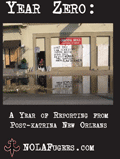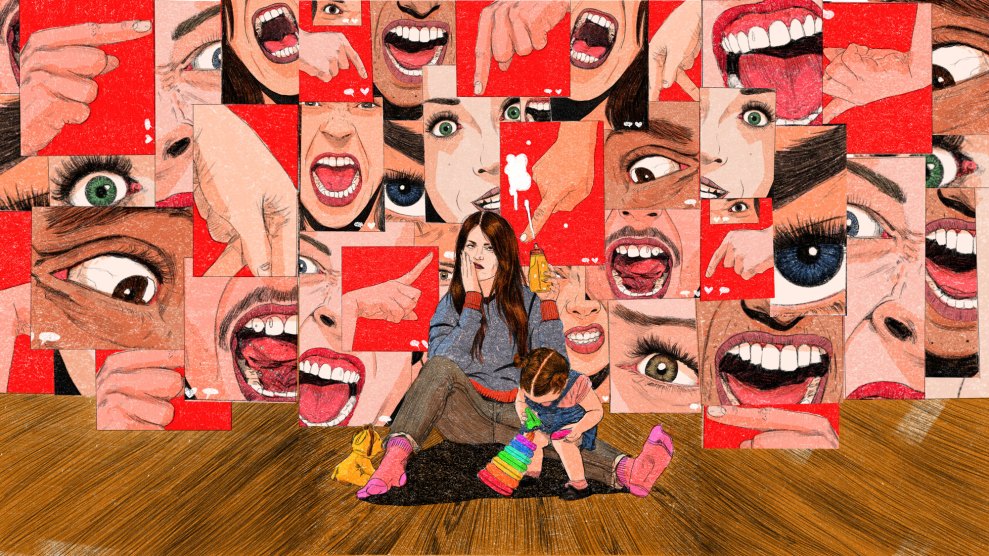
Year Zero: A Year of Reporting From Post-Katrina New Orleans, Lavender Ink, $15.95.
Year Zero is a collection of a year’s worth of reported and written accounts documenting post-Katrina New Orleans. It takes on the sardonic style of the internet zine NOLAFugees.com, from which it spawned. Self-heralded as the “best internet magazine alive,” the online publication combines on-the-street journalism and satirical musings of New Orleans citizens who are looking to give an honest portrayal of what is left of their city. The creators felt that a creative and alternative news outlet was lacking in New Orleans.
The book, which is simply a compilation of essays that appeared on NOLAFugees.com in the year following Katrina, is of course extremely candid as well. In a raw delivery of everyday citizens’ memories and emotions about their city and its remnants in the wake of a disaster, the editors succeed in their goal to create “reality, mixed in with some well-crafted lies in order to clarify some essential truths.” At times it’s difficult to discern what is real and what is spoof, and some of the pieces are borderline crass. One of the segments is written by Cookie, a make-believe gossip-style columnist who satirically covers the “goings-on-about-town,” ragging on local personalities. But I think such a brash variety of content is what the Year Zero editors had in mind. The introduction to the book states “we make little distinction between fact and fiction, which we hope reflects our lack of faith in either.” Whether the stories are true or made up, the writers and editors claim that what you read on their site and in their book is as real a picture of post-Katrina New Orleans as anything out there.
What appears on first read to be a random mix of real-life stories does indeed have a broader meaning. The writers sought to ask what we have learned since Katrina, and whether any positive changes have been made. The essays don’t just focus on what happened with the hurricane, but rather what’s going on now in the city: the local elections, attendance at football games, how the economy has faired, and the pervasive homelessness.
The stories range from a critical look at a columnist who claimed a connection to post-Katrina New Orleans because his son once lived in Hurricane Hugo-wrecked Charleston, to a landlord who refuses to exploit his tenants by jacking up the rents in his apartments, to a Red Cross volunteer who describes the people he encounters while doling out lines of credit.
But what you realize after reading the book is that the trouble for New Orleans didn’t just start with the hurricane.
One writer points out that “to the outsider, New Orleans weighs as myth, fulfilling the niche of sweet fantasy for most, a visceral, palpable alternative to ‘real life’ that a standard, American-made existence doesn’t allow.” The writer is quick to point out that life in New Orleans can be beautiful, but beauty can be difficult. Throughout the book there are stories of people’s troubles from before and after the disaster. And as readers go through these stories they start to realize that to the outsider, the New Orleans they once knew as a fantasy world of drunken debauchery and a vacation from their own worlds is so much more to so many people.
And this is the experience readers get from reading Year Zero: you see the line that is drawn between outsiders and insiders. We outsiders saw a struggling but distant New Orleans becoming rocked by a natural disaster, a national crisis. But for many people in New Orleans, life has always been difficult—and nothing like a fantasy—and Katrina “was just one more tragedy in a lifetime filled with them.” Year Zero gives readers the real truth that only New Orleans-dwellers understand.












